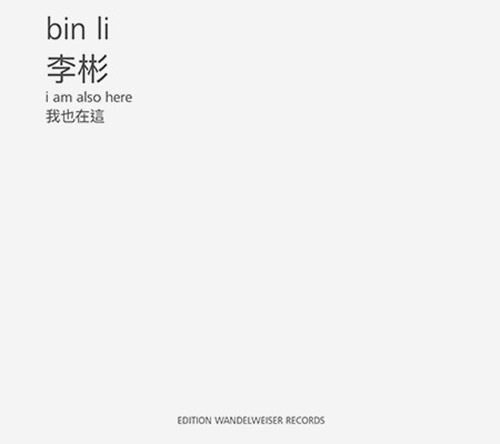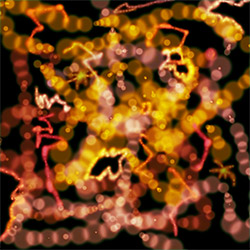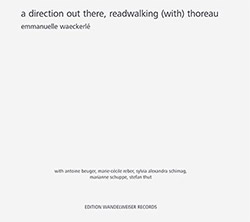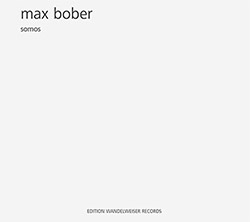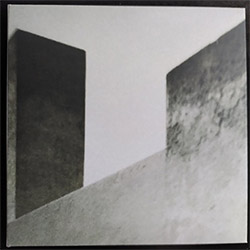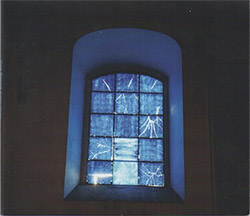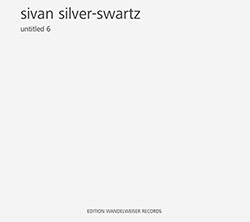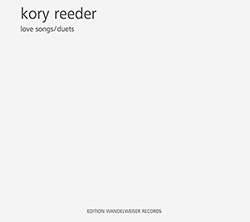
A work of silence and intervention from Manhattan-based Chinese composer and sound artist Bin Li presenting two versions of the title track, with Stefan Thut on viol & voice on the 1st version, and voice only on the 2nd, using the locations of Manhattan and Gimmelwald, Switzerland as the background of careful viol and voice placement; intriguing and compelling.
In Stock
Quantity in Basket: None
Log In to use our Wish List
Shipping Weight: 2.00 units
Sample The Album:
Bin Li-Guqin [Qin], Hichiriki, voice
Stefan Thut-Viol, voice
Click an artist name above to see in-stock items for that artist.
UPC: 4011778041160
Label: Edition Wandelweiser Records
Catalog ID: EWR 1910
Squidco Product Code: 28578
Format: CD
Condition: New
Released: 2019
Country: Austria
Packaging: Cardboard Gatefold 3 Panels
Recorded by the artists.
"Whereof one cannot speak, thereof one must be silent."- Ludwig Wittgenstein, Tractatus Logico-Philosophicus, 7
"As near as I can determine, despite having written and having had performed a number of works (see Li's site here), this is Li's first recording. The title track is performed twice, each with Stefan Thut (viol and voice on the first version, only voice on the second) and the composer (voice on the first, voice and qin--a kind of Chinese zither--on the second). In each instance, the surrounding environments, Manhattan and Gimmelwald, Switzerland, play a major role. The four-word text is spoken, often with many minutes between words, in English and/or Chinese, the instruments briefly played, perhaps mimicking the cadence, such as it is, of the phrase. In the wooly atmospherics of Gimmelwald, Thut begins the first rendition by saying, "I am here". His viol is briefly bowed a handful of times as the phrase, a word at a time, is spoken over 15+ minutes, I believe alternately by Thut and Li. The sound fades out completely once, then returns with the final word, "here", said immediately, a little startling, like being awakened in a park after an unbidden nap. The ambience is more intense on the second version, which lasts over 43 minutes, all birds and blurred traffic (though it fluctuates throughout the piece), Li (or maybe Thut?) speaking in Chinese with the odd pluck of the qin, loud in context. There are near-complete cessations of sound, the faintest of fuzz. Pileated woodpeckers and airplanes on the sound's return. Again, toward the end of the work, there's that abrupt awakening. The title of the final work is phonetically transliterated as "you" but means, "also", therefore carrying some of the meaning of the title track while also serving, to an English speaker, as a kind of mirror reflection to it. Li plays (again, sporadically) the hichiriki, Japanese double-reed instrument heard in gagaku. He seems to be intoning the syllable, "you", with its Chinese inflection, playing the instrument breathily and, at the piece's conclusion and in contrast to the instruments on the rest of the disc, with a rush of soft tones over a relatively long period. An absolutely fascinating set of music--I'm eager to hear more."-Brian Olewnick, Just Outside

The Squid's Ear!
Get additional information at Brian Olewnick's Just Outside
Artist Biographies
• Show Bio for Bin Li "Bin David Li 李彬 Bin Li (b. Fuzhou, China) is a composer and artist based in New York City. Published by Edition Wandelweiser, his recent work explores the immateriality of sound and its derivatives. His open scores have been realized in Klangraum (Düsseldorf), Cosy Nook (London), Inner Field (Brooklyn), Gänsemarkt (Hamburg), A Place to Listen (Canada), Score Follower and The Unseen Festival. Bin's conventionally notated music has been performed in the Aspen Music Festival, the Avantin Suvisoitto (Finland), the Bargemusic, the Tenri Cultural Institute, the Palais Montcalm (Quebec), the New York City Electroacoustic Music Festival, the Yogyakarta Contemporary Music Festival (Indonesia) and the Chinese National Contemporary Music Symposium. Leading performers including Avanti! Chamber Orchestra, Indianapolis Chamber Orchestra, Ensemble Multilaterale and members of Jack Quartet have featured his music. Bin released his first album "i am also here" via EWR in December 2019. Bin's past mentors included Antoine Beuger, Emmanuelle Waeckerlé, Stefano Gervasoni and Mark Andre. He was invited by IRCAM Manifeste as an active composer in 2018. Bin holds degrees from both the Jacobs School of Music and the Kelley School of Business at Indiana University (2012)." ^ Hide Bio for Bin Li • Show Bio for Stefan Thut "Composer and cellist. Born 1968, resident in Solothurn (CH). Trained at the Lucerne Conservatory and at Boston University School of Music. Most of his scores are to be rendered by performers; some scores serve as a template in field recording and sound art. In his compositions he operates with relatively determined open systems. Scores were realized at the Kunstraum Düsseldorf (2007), at Kid Ailack Concert Hall, Tokio (2007/09) and at the Diapason Gallery, New York (2010) among other locations. As interpreter he has premiered solo-pieces by Jürg Frey, Radu Malfatti, Tim Parkinson, James Saunders, Taku Sugimoto, Taku Unami and Manfred Werder and he has performed with the ensemble incidental music in Berlin, Brussels, London and Zurich." ^ Hide Bio for Stefan Thut
4/22/2024
Have a better biography or biography source? Please Contact Us so that we can update this biography.
4/22/2024
Have a better biography or biography source? Please Contact Us so that we can update this biography.
Track Listing:
1. I Am Also Here 15:20
2. 42:30
3. You 12:00
Compositional Forms
Electro-Acoustic
Organized Sound and Sample Based Music
Field Recordings
Unusual Vocal Forms
Stringed Instruments
NY Downtown & Metropolitan Jazz/Improv
European Improvisation, Composition and Experimental Forms
New in Compositional Music
New in Experimental & Electronic Music
Search for other titles on the label:
Edition Wandelweiser Records.

